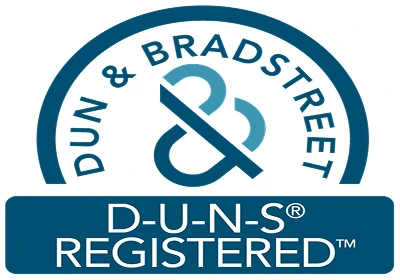Clinical Diagnostic Published Insights
Published Date : 09 Feb, 2026
The methicillin resistant staphylococcus aureus (MRSA) testing systems market expansion relies on various elements such as the escalating prevalence of staphylococcal infections, the implementation of novel methicillin resistant staphylococcus aureus (MRSA) testing sy... View more
Published Date : 09 Feb, 2026
COVID-19 detection kits can identify the SARS-CoV-2 or coronavirus through two methods. The first method is the RT-PCR method in which the presence of the virus itself is detected and the second is an immunoassay test which detects antibodies produced in response to t... View more
Published Date : 09 Feb, 2026
Diabetes mellitus is a chronic metabolic disease with a high incidence worldwide. Glycated hemoglobin (A1C) is the reference test for long-term glucose monitoring and has been shown to be associated with chronic complications of diabetes. However, A1C is not recommend... View more
Published Date : 09 Feb, 2026
Western blotting is a laboratory technique used to detect a specific protein in a blood or tissue sample. The method involves using gel electrophoresis to separate the sample's proteins. The separated proteins are transferred out of the gel to the surface of a membran... View more
Published Date : 09 Feb, 2026
Filtration is a sterilization method used in laboratories worldwide. It is one of the most important steps in almost all types of laboratory process related to environmental, chemical, and life science applications. Laboratory filtration is one of the... View more
Published Date : 09 Feb, 2026
A self-test is a procedure that can be carried out at home to identify or diagnose a variety of illnesses. The terms "home test," "at-home test," and "over-the-counter (OTC) test" are also used to describe it. In order to protect everyone by reducing the likelihood of... View more
Published Date : 09 Feb, 2026
The global troponin market has been witnessing significant growth over the past few years owing to the rising prevalence of cardiovascular diseases worldwide. Troponins play a vital role in the diagnosis of myocardial infarction and cardiac injury. Troponin is a prote... View more
Published Date : 09 Feb, 2026
Cholesterol testing services have become increasingly important in recent years owing to the rising prevalence of cardiovascular diseases worldwide. As per studies, high levels of cholesterol, especially low-density lipoprotein (LDL) or bad cholesterol, are one of the... View more
Published Date : 09 Feb, 2026
Cervical dysplasia is precancerous changes of the cells that make up the lining of the cervix, the opening to the womb (uterus). These changes are detected by microscopic analysis of cell samples which are taken from the cervix during a pelvic exam. Squamous intraepit... View more
Published Date : 09 Feb, 2026
The Europe and MEA culture test for healthcare-associated infections market is estimated to be The Europe and MEA Culture Test for Healthcare-associated Infections Market is estimated to be valued at USD 299.1 Mn in 2025 and is expected to reach ... View more
Published Date : 09 Feb, 2026
The Global Metabolomics Services Market is estimated to be valued at USD 3.21 Bn in 2025 and is expected to reach USD 7.31 Bn by 2032, exhibiting a compound annual growth rate (CAGR) of 12.5% from 2025 to 2032. Metabo... View more
Published Date : 09 Feb, 2026
Central lab market refers to the setup and functioning of centralized laboratories that serve as a hub for conducting medical tests and research. These labs play a pivotal role in streamlining diagnostic workflows, improving quality control, and reducing turnaround ti... View more
Published Date : 09 Feb, 2026
Global laboratory supplies market growth is driven by rising demand for various test kits and consumables across food, agricultural, chemical and biomedical industries. Laboratory supplies include a variety of instruments, reagents, consumables and even small pieces o... View more
Published Date : 09 Feb, 2026
Pharmacogenetic testing is a technique that examines genetic variations of individuals to check their ability to metabolize and respond to drugs. It helps determine the safety and efficacy of medications for an individual based on their genetic makeup. This testing pl... View more
Published Date : 09 Feb, 2026
U.S. post-acute care market involves the provision of medical care after a patient is discharged from a hospital. It includes skilled nursing facilities, inpatient rehabilitation facilities, long-term acute care hospitals, and home health agencies. Post-acute care pla... View more
Published Date : 09 Feb, 2026
The global diagnostic imaging services market is estimated to be valued at USD 565.55 Bn in 2025 and is expected to exhibit a CAGR of 5.9% during the forecast period (2025-2032). The diagnostic imaging services market refers to the market for medical procedures that a... View more
Published Date : 09 Feb, 2026
Global colorectal cancer screening market is estimated to be valued at USD 16.57 Bn in 2025, and is expected to exhibit a CAGR of 7.3% during the forecast period (2025-2032). Colorectal cancer (CRC) is one of the most commonly diagnosed cancers globally. It arises f... View more
Published Date : 09 Feb, 2026
Preeclampsia is a pregnancy complication characterized by high blood pressure and presence of protein in the urine after 20 weeks of gestation. It can be a dangerous condition for both mother and baby, if undetected. Early diagnosis is crucial to allow clinicians to c... View more





